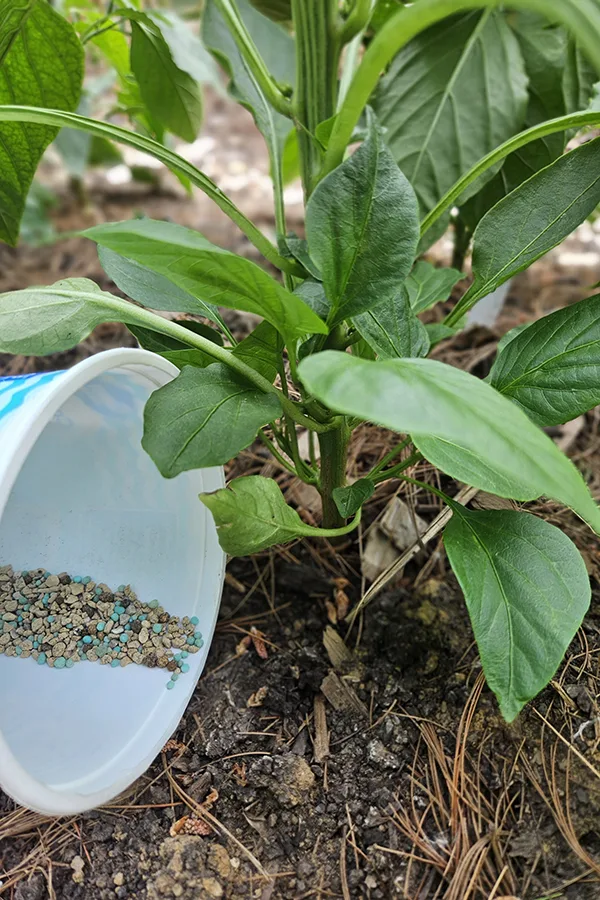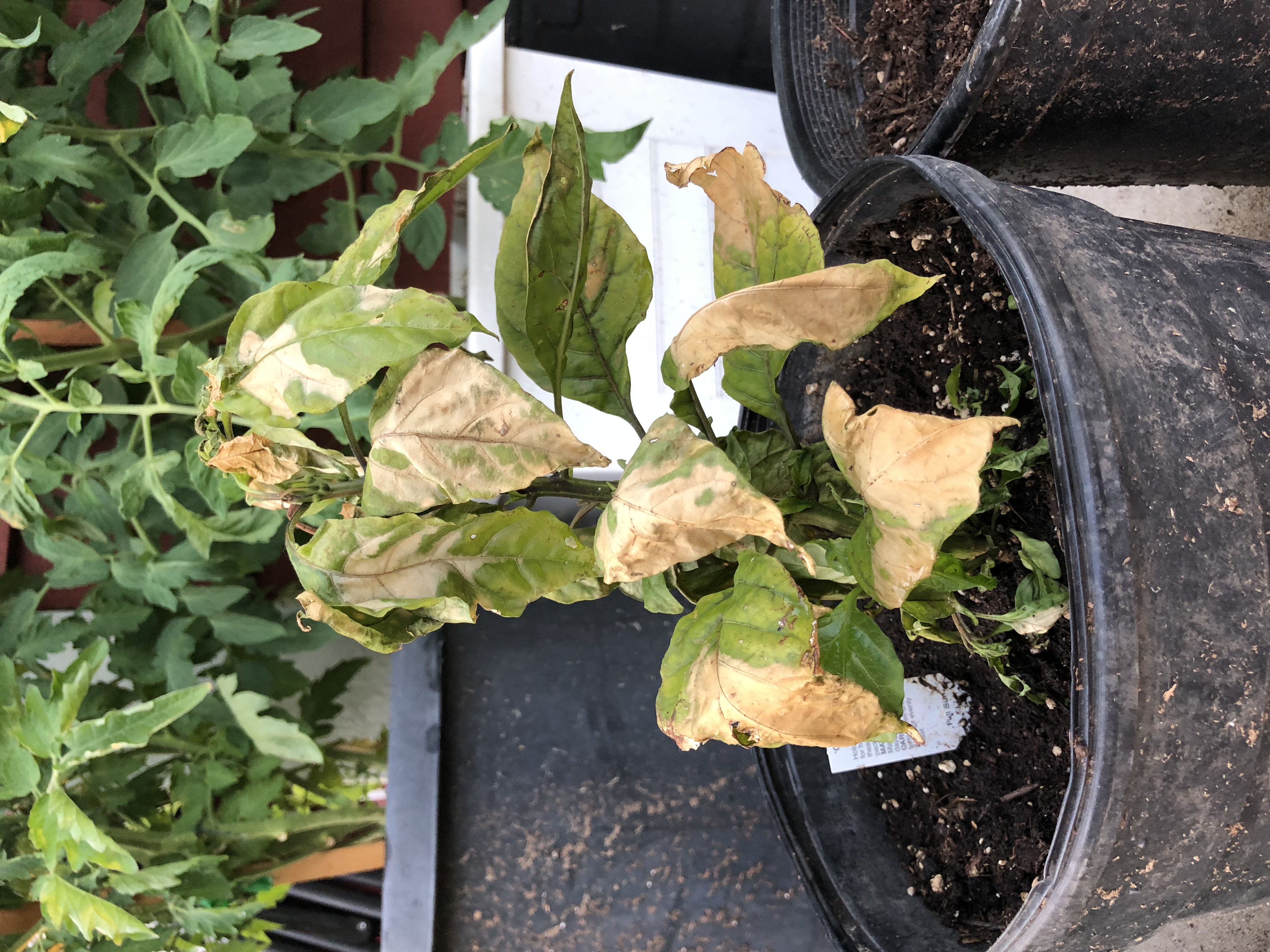Best Fertilizers for Peppers: Boost Growth and Flavor Naturally
Best Fertilizers for Peppers: Boost Growth and Flavor Naturally
Blog Article
Just How Plant Foods Play an Essential Role in Growing Healthy And Balanced and Abundant Pepper Crops
Fertilizers work as the foundation of effective pepper cultivation, providing a critical technique to nurturing the soil and cultivating ideal plant development. The elaborate dance in between necessary nutrients and the pepper plants' physiological procedures highlights the essential role that fertilizers play in ensuring an abundant harvest. From sustaining robust root advancement to reinforcing disease resistance, the effect of fertilizers is far-ranging in the farming of fruitful and healthy and balanced pepper crops. Remain tuned to uncover the nuanced methods in which fertilizers contribute to the flourishing of pepper plants and the lasting techniques that underpin their efficacy.
Value of Nutrient-Rich Plant Foods
The application of nutrient-rich fertilizers plays an essential function in boosting the performance and top quality of pepper plants in modern-day agricultural techniques. Potassium, phosphorus, and nitrogen are main nutrients that are important for the development and development of pepper plants.
Poor degrees of these nutrients can lead to stunted growth, minimized returns, and susceptibility to conditions (best fertilizers for peppers). Nutrient-rich fertilizers provide a targeted option to make certain that pepper plants get the essential elements for optimal growth and performance. Additionally, these fertilizers aid boost dirt fertility with time, producing a lasting environment for long-term pepper growing
Enhancing Plant Development and Growth
To maximize plant development and advancement in pepper plants, strategic application of nutrient-rich fertilizers is important. Fertilizers play an important duty in enhancing the overall wellness and productivity of pepper plants by offering them with essential nutrients that may be lacking in the dirt.
In enhancement to these macronutrients, trace elements such as zinc, magnesium, and iron are additionally essential for the correct performance of various plant processes. Iron, as an example, is necessary for chlorophyll manufacturing, which is important for photosynthesis and total plant development. Zinc plays a crucial duty in enzyme activity and hormonal agent synthesis, impacting plant growth and development at a mobile degree. Magnesium is crucial for the formation of chlorophyll and total energy transfer within the plant.

Boosting Illness Resistance With Plant Foods
By tactically including targeted plant foods, farmers can boost the illness resistance of pepper plants, making certain optimal plant health and performance. Plant foods including necessary nutrients like potassium, phosphorus, and nitrogen play an important function in strengthening pepper plants' immune systems, making them a lot more durable to numerous illness.

Maximizing Pepper Return Through Fertilizing
Using a balanced fertilizing strategy is vital to attaining maximum pepper return and making sure ideal plant efficiency. By giving peppers with the right nutrients at the correct time, farmers can substantially improve their return potential. Nitrogen, potassium, and phosphorus are vital aspects for pepper growth, with nitrogen helping in fallen leave and stem advancement, phosphorus supporting root development and flower formation, and potassium advertising general plant wellness.
To take full advantage of pepper yield, it is critical to perform soil tests to determine existing vitamins and mineral degrees and recognize any type of deficiencies that need to be attended to. Based upon these results, farmers can develop a tailored fertilization plan that fulfills the specific needs of their pepper plants. In addition, proper fertilization strategies such as split applications throughout the expanding period can guarantee continual nutrient schedule for the plants.

Sustainable Fertilizer Practices for Peppers
In thinking about sustainable fertilizer techniques for peppers, it is critical to concentrate on lasting dirt health and wellness and environmental stewardship together with optimizing plant productivity. Sustainable click to read more fertilizer techniques intend to enhance or maintain dirt fertility while minimizing adverse environmental impacts. One key technique is using natural plant foods such as garden compost, manure, or cover plants, which not only supply necessary nutrients to the peppers yet also contribute to dirt framework and microbial activity. These organic my response options help build raw material in the dirt, boosting its ability to keep water and nutrients, consequently sustaining long-lasting plant health and wellness and resilience.
Furthermore, precision farming techniques, such as dirt testing and targeted nutrient applications, can help maximize fertilizer use, ensuring that peppers receive the nutrients they require without excess overflow into rivers. This not only benefits the environment by lowering contamination however likewise saves expenses for farmers by decreasing waste. By adopting lasting plant food techniques, pepper farmers can secure the health and wellness of their plants, soil, and bordering ecological communities for future generations.
Conclusion
Finally, plant foods are essential for growing abundant and healthy pepper crops. best fertilizers for peppers. They give necessary nutrients for plant growth and advancement, increase illness resistance, and make best use of return. By carrying out lasting fertilizer practices, farmers can guarantee the long-term health of their pepper crops and add to an extra environmentally-friendly and reliable agricultural system
The elaborate dance in between necessary nutrients and the pepper plants' physical processes highlights the crucial function that fertilizers play in ensuring a plentiful harvest.To optimize plant development and advancement in pepper plants, tactical application of nutrient-rich fertilizers is necessary. Fertilizers play an important role in boosting the total wellness and productivity of pepper plants by offering them with essential nutrients that might find out this here be lacking in the dirt.By purposefully integrating targeted fertilizers, farmers can bolster the illness resistance of pepper crops, ensuring optimal plant health and productivity. Plant foods including necessary nutrients like potassium, phosphorus, and nitrogen play an essential duty in enhancing pepper plants' immune systems, making them much more resilient to numerous illness.
Report this page